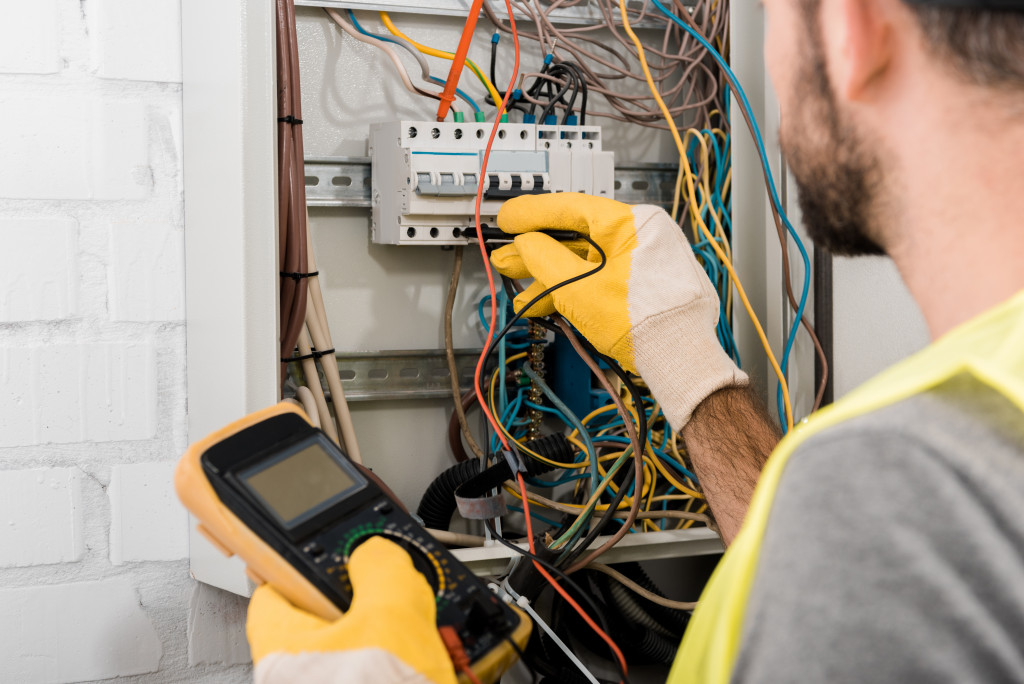- An essential factor in successful real estate investing is thoroughly inspecting each property before making a purchase decision.
- Potential buyers must identify area-specific issues such as environmental contamination, zoning restrictions, taxes, etc.
- Home inspectors should assess the household systems to check for damage, leakage, improper installation, missing shingles, electrical wiring issues, heating and ventilation problems, etc.
- A thorough home inspection can help identify potential maintenance and repair issues requiring costly repairs.
Real estate has consistently been a profitable investment for many. With the increased demand from population growth, low-interest rates, and the growing global economy, now is a great time to enter the real estate market. Entering the real estate market can be extremely rewarding when done correctly and with proper education.
Numerous benefits of investing in real estate make it so attractive to potential investors. When considering real estate as an investment, you have the potential to diversify your portfolio and increase your cash flow with rental income. You can also benefit from the long-term appreciation of property values and tax deductions related to property expenses.
It’s important to remember that the success of any real estate venture depends on careful research, planning, and risk management before entering into any transaction. One of the critical elements in successful real estate investing is thoroughly inspecting each property before making a purchase decision. Before purchasing any property, it is essential to undergo an inspection by a qualified home inspector or building inspector who will be able to identify possible issues and determine if any further work needs to be done before closing the deal. Here are a few essential tasks for the home inspection process that you should consider before buying a property.
Identify Area-Specific Issues

The location of a property can be an essential factor that affects its value and potential profit. Potential buyers must consider any issues related to the site before they decide to invest in real estate. Environmental contamination and zoning restrictions are two of the most common problems affecting a property’s suitability for residential purposes.
Environmental contamination is one of the primary concerns when assessing a property for potential purchase. Contamination from nearby industrial or agricultural sites, or even chemical spills, can create health hazards for residents living nearby and significantly reduce the value of a property.
Potential buyers must check if there is any possible environmental contamination in the vicinity before making their purchase decision. Home inspectors should also carefully review every aspect of the environment, such as soil samples, air quality tests, and water sampling, to ensure that no hazardous materials are present on or near the property.
Another potential issue that needs to be considered is zoning restrictions which local governments often impose. Zoning laws regulate land use and construction activities in certain areas. They typically specify how close structures can be built to each other, how high buildings can be constructed, and what type of activity is allowed in certain areas, among other limitations depending on the local government regulations.
Home inspectors need to analyze these restrictions before any investment is made, as they may conflict with any plans for building improvements or expansions. In addition, additional taxes may apply when buying properties within certain zones, so this must also be considered when assessing a property’s cost-effectiveness as an investment opportunity.
Assess Household Systems

The condition of the building itself can affect its value and usefulness for any potential residential project. Home inspectors should carefully evaluate all visible aspects of the property, such as the following:
Plumbing
The plumbing system is a critical component of any home, and its condition must be assessed before purchasing. Home inspectors should look for signs of leakage or improper installation that could lead to costly repairs in the future.
Roofing System
The roof is essential to any building since it protects from the elements. Home inspectors should check for loose tiles, missing shingles, and other damage that could reduce property value.
Electrical Wiring
Home inspectors must also carefully review the electrical wiring in a property to ensure that it is up-to-date and functioning correctly. Electrical system issues can be dangerous if not corrected quickly, and they can often require expensive repairs after years of neglect. Fortunately, you can use professional electrical system assessments to confirm that the wiring is safe and functioning correctly.
Heating and Ventilation
Every home requires a functioning heating and ventilation system to control airflow and temperature. Home inspectors should check for any signs of corrosion, leaks, or damage that could affect the building’s air quality or energy efficiency.
Looking for Maintenance and Repair Issues
The most vital inspections to make before investing in real estate are the ones that can identify potential maintenance and repair issues. Home inspectors should look for signs of damage, rot, or other deficiencies that could require costly repairs. Cracks in walls, gaps around doors and windows, warping due to moisture penetration, and water stains from previous leaks are all signs of potential problems that home inspectors should keep an eye out for when inspecting a home. Fortunately, you can find a home inspection checklist to help you remember to check all the necessary items.
Final Thoughts
A thorough home inspection can be essential in any real estate investor’s arsenal. By taking the time to assess each potential property carefully, you can save yourself from costly repairs and unwelcome surprises later on. A professional inspector can identify potential problems and risks quickly and efficiently, allowing you to make informed decisions about your investments. With careful planning and proper research, you can maximize your chances of success when investing in real estate.

